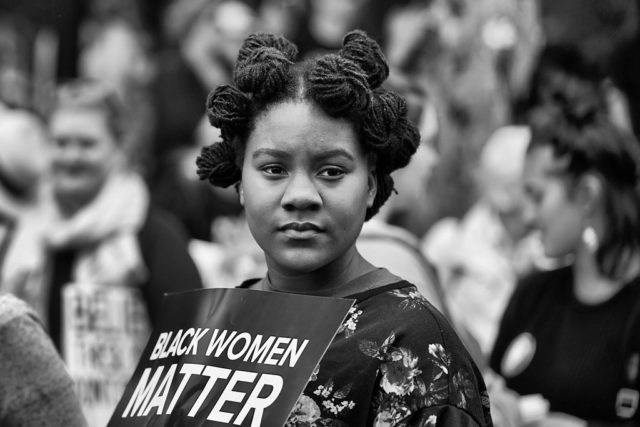Not too long ago, I witnessed a polite, Midwestern-style, 21st-century drive-by.
I was in a space in which human service, nonprofit, and clergy professionals were meeting to talk about social and racial justice, generally, and how white allies could help the struggle for the liberation of Black people, specifically.
The meeting attendees clumsily pulled from their shaky vocabulary of stereotypical, performative buzz words that equate to pats on the back for them. “Lift up.” “Call in.” “Safe space.” “Privilege check.” “Anti-racist.” Even “woke.”
This is what finely honed performative allyship looks like.
I listened carefully to the presenters, speakers and leaders of the meeting — almost all white women — throw out, like frisbees, the obligatory names of racial justice figures and racist tragedies perpetrated on American soil one must invoke when having such discourse. MLK. Kendi. Robin DiAngelo. Tuskegee Experiment. Trayvon. Black Wall Street…
When the presenters had exhausted the list, or rather when the list exhausted them, they began showing slides and images of the protests of the Summer of 2020.
One of the pictures was of a group of Black women who couldn’t have been more than 12 years old. They were holding “Black Lives Matter” and “Say Her Name” signs, while marching at dusk, toward a police line, sealed with riot gear, smoke hovering above like a nimbus cloud.
As I looked at this heartbreaking picture, a few of the white women participants of the meeting, audibly remarked at how “strong” and “brave” these young women were, and that their badassery made them essentially superheroes with superhuman abilities.
They aimed, slowed down, filled the young women of color in the pictures with holes, and then walked off.
These allies, no matter how well-intentioned, are a part of a very harmful phenomenon regarding Black women. That is, Black women, because of their strength and resilience, are not afforded opportunities to express the fullness of their humanity.
It’s a dizzying, tragic yet familiar narrative. Since Africans touched by the diaspora were stolen and smuggled to the shores of America, our society has placed unconscionable burdens on Black women.
We told Black women that they had to be the emotional foundations of their households. We told them that they needed to raise healthy children that were ready to thrive in a society built to oppress them.
We told Black women that they had to work and toil and sweat in this economy just like men. We told them they had to lead movements for our freedom and equality, while men took credit for the leadership. We called on them to be everything and nothing at the same time.
As womanist philosopher bell hooks notes, “On any plantation with a substantial number of female slaves, black women performed the same tasks as black men; they plowed, planted, and harvested crops, led revolutions…but were expected to play a subservient role to men.”
They were expected to play this role or not survive in this society if they failed.
And they found a way to not simply meet the demands the world placed on them, they continued to exceed them — sometimes in improbable and impossible conditions that were ripe for their failure. There is not a single institution in the Black community in which Black women haven’t played a pivotal role in developing.
Our response to Black women performing under pressure has been twofold. We have either told them explicitly that they are, in fact, buckling under the weight of societal pressure, in direct contradiction to what our eyes actually see them doing.
Or, we tell them that they are only performing capably in our society because they possess superhuman abilities. And sometimes our society tells Black women both things at the same time.
How many times has Michelle Obama been called a bad American or a terrible mother on one hand, while maintaining a physique that “she obviously had to have help with”? How many times has Oprah been praised for her “impossible” work schedule, while also been ridiculed as “selfish” for choosing to not have biological children?
This gaslighting of Black women really works to invalidate their experiences. It works to explain how our society can praise Darnella Frazier or Ruby Bridges for their bravery and courage, but vilify Ma’Khia Bryant for displaying that same bravery.
Black women have rightly characterized themselves as “strong Black women” or their body of work and abilities as “Black girl magic” in a move to control their own narrative. It’s really beautiful to see.
However, Black women should be given space for the expression of their full humanity, yet time and time again, we see examples and images across media and social media where Black girls and Black women are inadvertently thrown into this dynamic by those applauding them for their strength and passion, but also robbing them of their humanity, stripping them of softness, delicacy, and vulnerability, and expecting them to perform like superhumans while simultaneously being treated as subhuman.


































